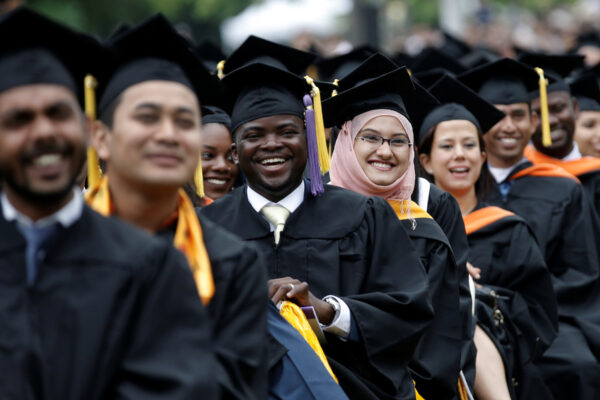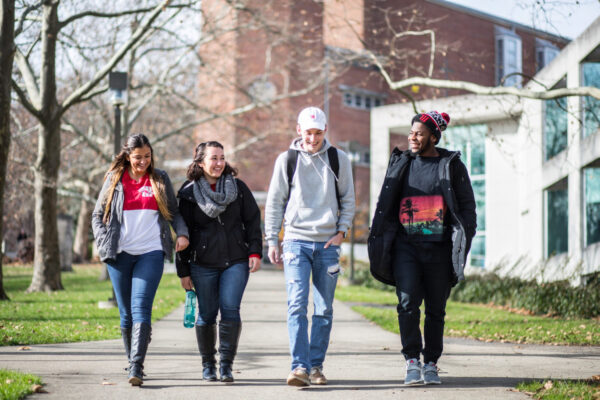By Connie Anderson
This post is the latest in a series on college student mental health and well-being.
Most first-time college students face challenges adjusting to new academic demands and campus life. These challenges can be even more daunting for students on the autism spectrum—and are often accompanied by mental health concerns. Our research team at Towson University in Maryland recently interviewed 18 parents and, in seven cases, their young adult students with autism spectrum disorder (ASD) to ask what had gone right (or wrong) for these teens as they attempted postsecondary education.
ASD: Gifts and Challenges
Although there is great variation among high school graduates with ASD, their key areas of strength tend to include attention to detail, a fantastic memory, and a passionate interest in one or more topics. They are usually genuine and honest to a fault. On the other hand, challenges may involve:
- Difficulty reading and responding to the social world; social blindness and naïveté*
- Preference for routine and difficulty dealing with change*
- Anxiety, depression, or some other mental health issue
- Issues with self-regulation and limited ability to cope with frustration, anger, or anxiety
- Issues with executive functioning (i.e., the ability to think ahead, organize, and plan)
- Some delay in life skills (e.g., hygiene)
*Defining symptoms of ASD
These young people often have experienced years of being behind socially compared to their peers, and more than a few have been victims of bullying. All of this can increase social anxiety and make the transition from high school to college even harder.
Starting College with ASD
Imagine Joe, a student on the spectrum with a 3.8 high school GPA. He attended a fairly ASD-savvy high school that provided substantial support, forgave some missed deadlines so that grades weren’t impacted, and accommodated the occasional behavioral outburst. During his time in high school, Joe was taught to recognize when he was becoming upset; he had a pass to go cool off in the guidance office, where a sympathetic and knowledgeable counselor helped Joe get himself back on track. His favorite teacher understood autism and worked hard to facilitate Joe’s participation in key high school events such as prom.
After high school, Joe enrolled at a large university away from home. His familiar places and routines were lost all at once—something especially jarring for a routine-loving person with ASD. In their place were new people, a new setting, and new rules. There were also new expectations, both in terms of academic rigor and independence.
The rights granted to children via the Individuals with Disabilities Education Act (IDEA) had fallen away. Through the university’s Disability Support Services (DSS) office, Joe and his parents learned they must fill out lots of paperwork and may need to submit to retesting. If he does this, he may receive extra time on tests or a notetaker, but his professors are unlikely to forgive missed deadlines. Likewise, there is no one to facilitate social interactions for Joe, or to help him to manage his emotions when he is upset. His college has a counseling center, but he will need to self-refer, which he may or may not do.
For Joe, the social piece is the hardest of all. His relationships with his peers were limited at home. Thrust into this novel situation, Joe finds it very challenging to interact at the same level as peers who are developmentally on track as far as their social sophistication. In high school, classmates grew up with him, and some were accepting of or even charmed by his quirks. This hasn’t been his experience with this new group of unfamiliar peers who are themselves going through a major transition.
There are plenty of students who find the college freshman experience to be too much, and they return home after a semester. How much more likely is this to happen to a student with ASD?
Study Findings
In our interactions with parents and their young adults with ASD, we heard about many college-related difficulties and successes. We found that, in most cases, students who stayed closer to home and chose a smaller institution did better. They also had fewer and less-concerning mental health issues.
For many, community college fit the bill. These campuses were often more contained and easy to navigate than those of sprawling four-year universities. They were also local, so that a student might encounter familiar faces from high school. One mother, whose daughter with ASD was thriving in a culinary program at a community college, said: “I was really excited for her . . . to be on campus all day and to feel like she has some independence.”
Community college also costs much less, which provided flexibility. The impact was less if a student found the workload to be too much and had to drop below full-time status, resulting in lost financial aid. Taking it slow could permit a student with ASD to grow into the experience. For example, one young man with ASD suffered so much anxiety that he ran out of the testing center without completing his first Accuplacer, and his mother had to complete a registration process he found overwhelming. By his third year, he was far better able to cope, registering on his own and completing one to two courses per term.
Those who went to college near their home had the advantage of extra support from family and, in some cases, a relationship with a therapist that could continue through this transition. This was especially important as so many of these young people had been coping with mental health concerns even during their high school years.
Another important factor was a campus culture that is accepting of differences. One mother had worried about peers accepting her son at a four-year college in the next town. She had confided in an administrator that her son was “kind of odd.” The administrator replied that all the students were eccentric at that college and he would be fine, which he was.
The young adults with ASD who attempted an institution far from home had the most difficulty. Five of these suffered a mental health crisis during their first year of college. In every case, they had gone straight from high school to a distant college and lived in the dorms.
One young man was thousands of miles from home at what his mother described as a “humongous state school.” Soon social issues and academic demands became too much. “There was nothing there for him,” his mother said. “He was lonely. . . . He went back for the second semester and just fell apart. We brought him home. He was probably 19 . . . [he had] massive depression.”
Another was failing badly and stopped going to class but never said a word to DSS or his parents. By the time his mother realized what was happening and confronted him, he crumbled, telling her he was contemplating suicide.
Key Takeaways
Based on both positive and negative college-related experiences shared by young adults with ASD and their families, there are a number of recommendations:
1. There should be a true assessment of a young adult’s readiness for college. Sometimes families and colleges engage in a “collective fantasy,” celebrating academic achievement and ignoring very real deficits in social skills, life skills, and executive functioning, as well as ability to self-regulate and self-advocate. All of these areas must be developed before high school graduation, and should be considered part of transition planning by both school systems and families.
2. A delay or less-fraught transition should be considered if a student is not ready for college. He or she might:
- Stay in high school longer—taking time to grow, mature, and gain skills.
- Take advantage of pre-college summer programs or other “practice” opportunities (for example, see Howard Community College’s Project Access).
- Attend community college or a four-year college closer to home in lieu of a distant four-year institution.
- Take a reduced course load.
3. Students with ASD who are attending college should be provided with all possible support. Of course, campus DSS offices provide some assistance, but these students will likely need more. If mental health has been an issue, counseling should be part of the mix from the beginning, not only after a crisis brews. Likewise, if there are signs of student distress once on campus, steps should be taken to address this sooner rather than later.
4. Facilitation of social inclusion and help with social aspects of education (like completing group work) is critical. If issues like conflict with classmates or professors arise, assistance should be sought from someone who understands ASD. The worst possibility is an assumption that the student is willfully difficult when he is literally impaired in his ability to read and navigate the social aspects of interaction.
5. If in the dorms, having one’s own room can relieve a lot of pressure, giving the student a place to retreat from social demands.
Students with ASD have great potential, but many need some ASD-specific support to succeed. An awareness of the issues that can interfere with success for college students with ASD should help high schools and families to better prepare them. At the same time, such knowledge should help universities to better support them. A number of innovative programs have been developed to assist college students with ASD, and can serve as exemplars of effective support. These include:
- Pathways: a program of the Maryland Division of Rehabilitation Services (DORS) supporting students with ASD at Maryland community colleges
- College Orientation & Life Activities Program (COLA): a program supporting students with ASD at Towson University via the Hussman Center for Adults with Autism
- Drexel Autism Support Program (DASP): a program supporting students with ASD at Drexel University
The study discussed in this article was reported in:
Anderson, Connie, and Catherine Butt. 2017. “Young Adults on the Autism Spectrum at College: Successes and Stumbling Blocks.” Journal of Autism and Developmental Disorders 47 (10): 3029–3039.
If you have any questions or comments about this blog post, please contact us.


